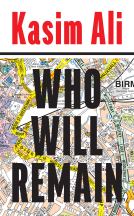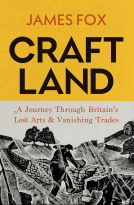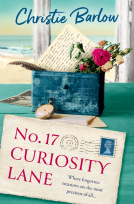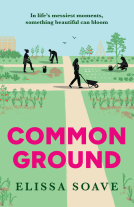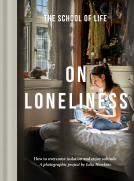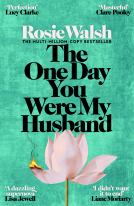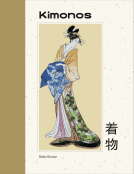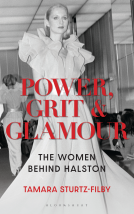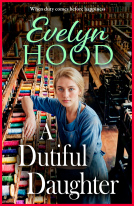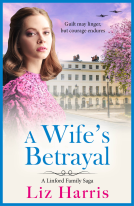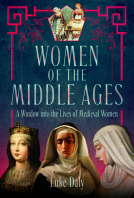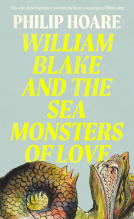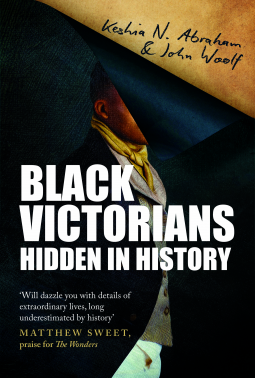
Black Victorians
Hidden in History
by Keshia N. Abraham, John Woolf
This title was previously available on NetGalley and is now archived.
Send NetGalley books directly to your Kindle or Kindle app
1
To read on a Kindle or Kindle app, please add kindle@netgalley.com as an approved email address to receive files in your Amazon account. Click here for step-by-step instructions.
2
Also find your Kindle email address within your Amazon account, and enter it here.
Pub Date 15 Sep 2022 | Archive Date 1 Sep 2022
Talking about this book? Use #BlackVictorians #NetGalley. More hashtag tips!
Description
A landmark work of revisionist history exploring and celebrating the lives of Black Victorians.
Our vision of Victorian Britain tends to the monolithic – white, imperialist, prurient, patrician. However, though until very recently overlooked in our textbooks, there was another, more diverse Britain, populated by people of colour marking achievements both ordinary and extraordinary.
In this deeply researched, dynamic and revelatory history, Woolf and Abraham reach back into the archives to recentre our attention on marginalised Black Victorians, from leading medic George Rice to protestor William Cuffay to attention-grabbing abolitionists Henry ‘Box’ Brown and Sarah Parker Remond; from pre-Raphaelite muse Fanny Eaton to composer Samuel Coleridge Taylor.
Black Victorians shows how Black lives were visible, present and influential – not temporary presences but established and rooted; and how paradox and ambivalence characterised the Victorian view of race.
Advance Praise
*PRAISE FOR THE WONDERS*
‘A promising young historian’ STEPHEN FRY
‘Nuanced and complex, Woolf deftly shows there are stories of empowerment alongside those of exploitation’ BBC HISTORY MAGAZINE
‘John Woolf's book will dazzle you with details of extraordinary lives, long underestimated by history’ MATTHEW SWEET, author of Inventing the Victorians
Available Editions
| EDITION | Hardcover |
| ISBN | 9780715654453 |
| PRICE | £20.00 (GBP) |
Average rating from 28 members
Featured Reviews
These heros of the past who have been mostly swept under the proverbial carpet - hidden from us, are finally getting to see the light of day. Prejudices were alive and sickeningly well back in the Victorian times as they are even now. I learned so much from these courageously valiant black men and women who persevered against all odds and despite the constant rejection of their personages and talents due to their skin tones. To know so many did push through shows their resilience and determination in so many areas such as in the music world, art, entertainment and even, and especially, in the activism of the abolitionists and anti-slavery advancement movements.
This book has been written by a white man about the black plight but I beleive he has credence if you see the extensive bibliography list of references from whence he must have done his research and has been kept accountable by a black collaborater, Dr. Keisha N. Abraham. Additionally, I do not apologize for using the terms 'black' or 'white' either. As you read Black Victorians, you'll understand why.
I found this book to be of great interest and have learned so very much. However, at times I did get bogged down by expoundings although they were needed. The reader just has to be patient and digest the wisdom and understanding while reading. I really was happy to have read this expose and believe all human beings could learn much from these heros such as Samuel Coleridge-Taylor, William Cuffay, Ida B. Wells and so many more.
~Eunice C., Reviewer/Blogger~
May 2022
Disclaimer: This is my honest opinion based on the review copy sent by NetGalley and the publisher.
 Bill C, Reviewer
Bill C, Reviewer
Black Victorians methodically moves through various social spheres of Victorian England to bring into the light those who presence has for so long been kept out of history, “colouring in the pages of history with more texture and substance” as co-author Keishia N. Abraham puts it in her foreword, with a goal of “making Black lives not only matter but valued, considered, appreciated, elevated, honoured … centered.” As fellow author John Woolf notes, this centering is no more or less “political” than any history, including the one that has most dominated — ”a version of white British history.” The purpose, Woolf, continues, is a “better understanding of the past,” which of course is difficult to do if one ignores entire populations of that past. In his introduction, Woolfe also confronts upfront the fraught question of whether it is “right that a white person should write any form of Black history,” nothing that these are questions he himself has wrestled with, and attempted to address with “humility and caution,” by collaborating with Abraham, “an expert on the Africa diaspora and a committed Black feminist,” to create a work that is “very much ours.”
The work itself is thorough, detailed, and for the most part fully engaging, though some casual readers may find it a bit too detailed in spots (hardly a complaint though). One of my favorite aspects is how the authors, after a general segment setting historical and research context, separate the book into sections focused on differing levels of class/power, beginning as Woolfe says with those “on the social margins … who struggled for survival inside notorious asylums and on the urban streets.” From there they move upward in status, such as a bishop and someone (William Cuffay) who fought to overturn the state and was transported to Australia after being convicted of treason. The next section focuses more on culture, looking for instance at the Jamaican model Fanny Eaton, composer Samuel Coleridge-Taylor (perhaps the most famous of the people studied here), and circus owner Pablo Fanque. Finally, the authors turn to politics, particularly abolitionists, including Henry “Box” Brown (so named for his method of escape from slavery), and journalist Ida B. Wells. This segment, like all of the prior ones, does an excellent job in portraying the agency of Black Victorians, something often ignored or trivialized on those rare times Black presence is even noted, with the abolition movement often portrayed as a bunch of white people arguing for Black power, with help from a bare handful of exceptional Blacks such as Frederick Douglass.
Besides the wealth of information, all presented clearly, methodically, and in well-organized fashion, Black Victorians also offers up at the end an absolutely fantastic bibliography, full of fascinating resources for those looking to further their exploration of the topic (or slide into other related areas, such as Victorian circuses). It’s only a slight exaggeration to say that I made nearly as many highlights in the bibliography than the text itself. A highly recommended work.
 Heather R, Reviewer
Heather R, Reviewer
My thanks to the publisher for an advanced copy of this book to review. It sets out to address quite why the agency of so many black people has been whitewashed out of the history of an age, which was in fact obsessed with race, as, upon it, rested the ‘moral’ justification for empire. Not just any empire. By 1914 25% of the world’s population and 20% of its land fell under British rule.
I think the book goes some way to succeeding in this endeavour, and, in doing so, describes the lives of a number of hugely fascinating people. Their stories are drawn from many different points of view. There are people on the margins, there are voices of protest, there are black aristocrats, there are black people in the arts, black professionals and there are black leaders of political struggle.
Sometimes I think the book spends too much time supposing what these black people might have thought or felt. Hakim Adi’s new book is better on this aspect because his people are selected for having managed to publish work about their lives, which tells us exactly what they thought and felt.
Also, although the book explicitly sets out to focus on African, Caribbean and African American people, it strikes me as odd, given the wide range of lived lives in the book, to highlight the foundation of the pan African Congress as a sort of culmination of the history of all their struggles.
That said, this is an informative and thought provoking book and I recommend it.
A treasure trove of information, this book shed light on the life and tribulations of some notable black prodigies. I felt it to be very insightful and the knowledge I gained, I feel grateful for it. At times like this, we need to educate ourselves about history and what influenced the present, about those who gave so much but never got the due recognition due to their skin colour and backgrounds. Amazing book. Thank you publisher for the e-arc.
 Media/Journalist 606767
Media/Journalist 606767
I read John Woolf's sensitively handled history of the Victorian circus and freakshows with interest, and Black Victorians (written with Keshia N. Abraham) is similarly accessible, empathetic and intelligent. In amongst the great orators and abolitionists are representatives of every social strata, from streetsweepers to clergymen to aristocrats and artists' models (a wonderful chapter on the still under-researched Fanny Eaton). Interwoven are strands of Pan Africanism and a sense of history converging to the present. If I had one criticism, it would be the gender imbalance, as men's lives outnumber women's in the book at roughly three to one. It makes you wonder how many women's lives have gone unrecorded in the archives and are lost forever once out of living memory.
 Reviewer 841480
Reviewer 841480
The book starts off strong with the author, John Woolf, questioning himself if he should be the one writing a book like this since he's a white man. The fact that he does question this and notes that there are a lot of black historians out there who can do as well a job as he does (Like Keshia N. Abraham) shows me that he means no ill intent by writing this. To quote him: 'As a result, this book is not the product of a white historian 'thinking black'; rather, it is a collaborative history that contemplates questions of 'race" in the nineteenth century.' In his introduction, it's very clear that he and N. Abraham had a great bond so I trust her judgement of him.
The book itself is such an important piece of information. It shares the lives of black people during the nineteenth century from every class. So, not only does this book show the upper class more well-known activists and artists, but it also talks about those that lived inside of asylums and those in jail. One of the things that stuck with me is the daughter of William Brown writing him letters which show how much he was loved even if he was stuck inside the asylum. There were a lot of parts in this book where they showed the emotional toll of these lives as well. For example, I learned that black performers also performed minstrel shows to make ends meet. Horrible but understandable in the climate they had to work in.
The book is full of inspiring stories and I was surprised that I haven't heard about some of these people. As a white person myself it visualises what these people went through as well as the trauma that some black people still carry on to this day. Highly recommend for anyone who's a history buff or who's an activist.
 Librarian 186177
Librarian 186177
Very interesting, I loved reading about a subject that I have never really heard about before! The writing also was engaging and smooth.
 Anne M, Reviewer
Anne M, Reviewer
This was a very interesting, well-written, and clearly carefully researched book. Its focus was to help remind readers that while we may think we know much about history, so much of it has been forgotten, ignored, erased, overlooked, or whitewashed. By dividing "Black Victorians" into different sections and then each chapter introducing us to one particular Black Victorian, then expanding, Abraham and Woolf give the reader a fascinating look into history that weaves together so that at no time do any of the people or events stand alone, They cover abolitionists; artists and musicians; criminals; aristocrats; and clerics and missionaries; then within each biographical chapter explain how Britain and British attitudes or culture might have changed over the century, and how individuals used those cultural beliefs or fought against them to reach their goals.
A book that anyone interested in history would appreciate, this is also a book college courses on decolonization and history should look to as an interesting starting point for many a discussion.
I received an ARC of this book from NetGalley in exchange for an honest review
This book was certainly an enlightening piece of work focusing on the lives of Black individuals living in the Victorian period in England. It was incredibly moving to read about about some of their stories and life events, knowing that a lot of history has been whitewashed. For me, an individual of Caribbean heritage living in England, it was even emotional at times learning so much about Black Victorians who I had never heard of or been taught about before. Throughout this book I spent a lot of time reflecting on how my school never covered. Black people in British history even though it is now more clear that they were present. Some of the facts were absolutely shocking to me and I found myself highlighting sentences of this book throughout- something that I rarely do! For a non-fiction book, it definitely kept me engaged and I loved that chapters were split into themes which added an enjoyable flow.
This is definitely a must read for EVERYONE who is interested in British history (the non-whitewashed version)!
 Reviewer 966131
Reviewer 966131
With thanks to NetGalley, the authors, and the publishers for providing me with an ARC in exchange for an honest review.
To begin with, this is a fantastically written book that is engaging throughout. Well written, exquisitely researched, and compiled beautifully.
The collaboration between Dr Keisha Abraham and John Woolf is at the forefront and appears to be solidly grounded in respect and deference to her expertise.
It’s a truly thought provoking and well researched history book, with phenomenal readability and intelligent discussion.
I wholeheartedly recommend it to anyone who has the faintest interest in history, the Victorian era, or the stories of everyday people.
History is unofficially defined as being the story of the victors. That is to say, it is written from the perspective of the winners. When this is done, whole swathes of people and events are often marginalized, if not omitted outright. That is why a book like "Black Victorians Hidden in History" is such a necessary and vital read.
Authored by Keshia N. Abraham and John Woolf, "Black Victorians" presents profiles of 16 Black men and women who played pivotal roles in Britain. While the book has 5 parts, the profiles are grouped into 4 chapters in parts 2 through 5, with each group of 4 bound together by a common characteristic.
Written in a lively, informative tone, there are times when the authors become repetitive. I'm sure this was probably done for emphasis, but when it happens multiple times in each profiles, it becomes tedious.
Despite the moments of tedium, the book was extremely enlightening. I alredy knew about 5 out of the 16 people. So it was quite fascinating to learn about the other 11, particularly those who had a connection to Sierra Leone, where my parents are from. I especially enjoyed the chapter on composer Samuel Coleridge-Taylor, as I am a music lover. It spurred me to listen to his composition 'Hiawatha', which I found to be powerful and moving.
This book is not meant to be one the read zips through, but rather one that should be read carefully and purposefully. The goal of the authors was to shine a light on little-known or recognized black Victorians, and in this they were extremely successful. They more than demonstrated that black Victorians, and Black people period, were and are integral members of society and history.
The book ends with a fitting quote from Carter G. Woodson, about what history should really be: "...What we need is not a history of selected races or nations, but the history of the world void of national bias, race, hate, and religious prejudice..." How wonderful it would be if this could truly happen.
Thanks to NetGalley, Keshia N. Abraham & John Woolf, and Duckworth Books for this advanced copy. All thoughts and opinions are my own.
I started a podcast which studies Black women throughout time and space, in worlds real and imagined. Season one focused on Black women in romantic period pieces, such as "Bridgerton" and "Sanditon." After much ill-informed critique about Black people throughout history, and where these Black people might be found, this book provides a well-researched record to re-inform said critique. From the foreword to end, this book is filled with facts that inform and humanize the subjects, but never patronize the reader. I would add this to your reading if you are studying, casting, writing, or critiquing period pieces and struggle with diversity.
 Ruth F, Reviewer
Ruth F, Reviewer
This was a really interesting and well researched book that covered a wide range of individuals throughout the Victorian period - some I had heard of, and a great number that I had not. The depth and range of individuals was particularly important in highlighting the extent to which Victorian Britain had a long-standing Black community and how, as the authors state, the emphasis on who was 'the first' can distract from the length of time that Black people had been important and integral parts of British life.
A very important and interesting read.
Thank you to NetGalley and the publisher for the ARC
 Educator 1004199
Educator 1004199
First, let me begin this review by stating: I WANT A COPY OF THIS BOOK. Please, Somebody, get me this for Whatever-the-Next-Gifting-Holiday-is! I also fervently hope that Duckworth Books will have this available (at a reasonable price!) through an American imprint so it can be adopted for college courses in the United States. This is the perfect book for a decolonizing history curriculum whether the course is focused on Modern Europe, Black History, History of Racism, Modern World -- or, in my case -- Roots of Contemporary Issues.
The reasons: First, the book is broken down into assignable, digestible thematic sections and chapters which focus on a single individual and their historical significance. Part One is "Context and Concealment" and it provides an overview of the state of black history in Europe and in Victorian Era historiography. Here, the point is made that the act of existing is resistance itself, it is a decolonizing act to just be. Bringing these histories to the forefront is a necessary and powerful step towards decolonizing history as it is popularly understood, historical narrative, and the academy. The following sections: "Struggle and Survival", "Church and State", "Cultural VIPs", and "Fighting for Freedom" offer well-researched deep dives into specific individuals across all classes, genders, and social positions. Working class black Britons, criminals, socialites, intellectuals, clergy, activists and freedom fighters are given a moment of spotlight and discussed as part of a larger colored and white fabric of Victorian society. This is a fantastic prosopography. And it could easily be partitioned to assign one or a few chapters per week to undergraduate students.
The second reason this book is ideal for an undergraduate seminar or an introductory survey course is because the readability of this book is amazing. Abraham's and Woolf's prose is smooth, the language requires little effort, their arguments are explicit, allowing for an easy transition from archival data to analysis to discussion. Indeed, the shift from storytelling to analysis is so seamless that many students are likely to be fooled into reading the entirety of any chapter assigned! Bonus: I bet the kids will really enjoy it. I am told over and over by students that they love seeing the "real people" in history.
The third reason is that while its accessibility makes it the perfect addition to any library, for any level of reader, it is also perfect for the more advanced historian, including those well versed in historiography and professional history production. Simply put, our own training is steeped in colonial and orientalist standards that have obscured the presence of color and ethnicity. We need to read this. I could not help but feel joy at reading this, though I am not black I am a scholar of color and from a former colony to boot! Black Victorians: Hidden in History is not the first or only of its kind, but is part of a larger movement towards decolonizing European history, which has been and remains largely as white history. Black Victorians joins Olivette Otele's African Europeans: An Untold History (2021) and Miranda Kaufman's Black Tudors: The Untold Story (2018) and others which are highlighting the transnational presence of Black people in other eras. The "Untold" theme across these recent histories is telling and a clue to the point being made: Black People never were confined to the so-called Dark Continent, that notion was a myth promulgated by a eurocentric academy, a eurocentric world -- and Here! Here is proof!
Therefore, and perhaps most significantly, Black Victorians is bound to hit with younger readers, a generation for which representation matters and matters a lot! This is for the next generation for whom the symbols and the exhibition of blackness can have an immense impact on their decisions now and in the future. Our students of color need to see themselves in their classrooms, on the big screen (by which I mean the white board and projector screen in the front of the classroom).
All this said, merely bringing black Victorians to the forefront is not the endgame. It is not the last word on this. This is only the beginning; the conclusion emphasizes not only existence of black victorians, but points out that black victorians -- black people -- have played significant roles in shaping their moment as well as the present, thus their historical existence was not static, sealed in a vacuum, but interactive and dynamically integrated with white victorian society. This is the more powerful message, one which the book manifests.
Again, please, someone, gift me a copy of this book! I will be looking for it to assign in a future course!
 Reviewer 463267
Reviewer 463267
An excellently researched and easily readable work that brought Black Victorians into focus from the lens of history that too often obscured and sometimes completely hid their presence. This was not a general history of Black Victorian experience but rather showed the wide rage of People of Color in all layers of society from insane asylums to aristocratic circles, from the church to the arts and political activity and protest through biographical sketches of people that may or may not be known to you. This monograph flowed easily between the interesting stories of these people lives to analysis and providing a context in which to view their actions and agency for they were not passive victims whatever their triumphs, tragedies and prejudices they faced. As one of the author noted, "...this book is concerned with resilience, not victimhood."
This work discussed "race" set in the context of the Victorian period. It was not limited to either "blacks" or "whites." The authors also reminded us that Victorians did not view race the same as we do today. And Victorians did not view race in the same manner as it was viewed in the United States. In fact, "the" Victorian view of race changed through time. It hardened and prejudice became more prevalent even while there were forces that challenged that view point. Thoughts and biases were often contradictory and hard to define with exact parameters. However, the authors identified strong influences throughout the period on the ever shifting perception of "race". This work was not mainly about those factors but were necessary to be discussed to view the people featured in this book in the right context. To ignore these factors that were in society would be another way to continue to obscure these people from history. It would also ignore the fact as Richard Wright said, "whites governed the conditions through which the discourse of race emerged and endures," which has impacted the presence of Blacks (capitalized for a reason as mentioned in the book) in historical discourse.
This was not Black history. This was history. Some of the people had large influences on movements and events that have been studied in the "main steam" history books for almost two centuries. The artistic influences of some of the people discussed are still felt today. While others were examples of people that were often not represented in the traditional narrative of history, i.e. insane asylum residents. The biographical accounts presented allow these people to be seen in history, that they were present. And that was and is important because, "...it is to history that we owe our frames of references, our identities, our aspirations." (James Baldwin)
I knew of some of the people (and those that I knew I learned more about and was challenged to view in a new way) while a majority I had not heard of. Finding out about William Darby, a/k/a Pablo Fanque, a talented and enterprising circus performer and owner was fascinating.
I was very glad the authors included Sarah Parker Remond a woman I greatly admire but does not often get mentioned. She was an African-American woman born to a non-enslaved, relatively well-off family in Massachusetts who challenged the norm that women did not speak in public to do Antislavery lectures in Great Britain with great success in front of thousands of people. She was part of the Executive Committee of a mostly white Antislavery Group in London during the American Civil War and wrote several pamphlets for the group. She also wanted to pursue her education which was not possible in America. She became a nurse and eventually a doctor and practiced medicine for about 20 years. Amazing!
I highly recommend this book. It was easy to read for people of all levels and still provided plenty of academic references. It was interesting too.
Thanks to Netgalley and the publishers for an ARC in exchange for an honest opinion. (less)
Readers who liked this book also liked:
Philip Hoare
Arts & Photography, Biographies & Memoirs, Nonfiction (Adult)

